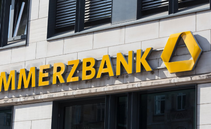In the shadow of the Kremlin, at least in theory, Russian citizens would not be able to purchase products from some foreign brands. And instead...

They call it parallel economy because it operates, grows, and develops alongside the official economy that keeps a country going. In some cases, however, it is the first of the two economies mentioned to make entire nations function. The most striking example involves Russia, overwhelmed by Western sanctions following the outbreak of the war in Ukraine and "abandoned" by large multinationals and Western companies.
In the shadow of the Kremlin, at least in theory, Russian citizens could not purchase products from some foreign brands. The government, at the same time, is expected to experience difficulty in sourcing some sanctioned goods and encounter serious economic problems. In Moscow and its surroundings, at least in the short term, nothing similar is happening.
The Russian market has simply demonstrated an unexpected resilience , knowing how to adapt to the challenges arising from the exodus of foreign brands and the sanctions regime endorsed by Europe and the United States. Proof of what has just been said can be found in a long article by Al Jazeera, which explained how Moscow residents manage, without problems of any kind, to purchase, for example, Apple devices despite the company’s withdrawal from the Russian market.
parallel imports and alternative supply chains are functioning as lifelines for the country’s consumers, who can now access a wide range of Western items.
The parallel economy of Russia
Since February 2022, nearly 1,400 companies, including many of the most internationally recognizable brands, have announced that they would cease or reduce their operations in Russia. Yet, two years after the start of the Russian offensive, many of these companies’ products are still widely sold in the Russian market, often in violation of the sanctions imposed by the West.
Aided by the Russian government’s legalization of parallel imports, businesses in the Russian Federation have created a network of alternative supply chains to import restricted goods through Third countries. In other words: all those products - such as iPhones and luxury cosmetics - which in the past were supplied by foreign companies, now arrive on Russian shelves via third countries not affected by sanctions.
In late March 2022, as the extent of the corporate exodus from Russia became clear, Moscow legalized parallel imports or importing products without the brand owner’s permission. These imports are not prohibited by international law and are permitted by some countries for certain goods. “Most commonly, it is used to secure the supply of essential medicines, but Russia has also expanded its list to include more common consumer goods,” he said. explained, again to Al Jazeera, Justine Nolan, director of the Australian Human Rights Institute at UNSW Sydney.
The response to sanctions
The case of Apple, whose products in many cases fall under Western sanctions, provides a typical example of how Moscow’s parallel imports work. After the outbreak of war in Ukraine, Russia’s largest retailer of Apple products, re:Store, closed for several months "to assess the situation" following the American tech giant’s exit from the Russian market.
When re:Store reopened in September 2022, the retailer changed its name to Restore: and expanded its catalog. From then on Restore: began selling Apple devices, along with other tech goods. All original and coming from destinations such as China and Dubai. In short, after the imposition of sanctions on Russia, suppliers found a way to get around the problem and continued shipments to Moscow at a substantially uninterrupted pace.
And the national economy? According to the International Monetary Fund (IMF), Russia’s gross domestic product (GDP) fell by only 2.1% in the first year of the war – compared to an expected contraction of the ’8.5% – and has continued to grow ever since. According to an analysis by the Brussels-based think tank Bruegel, Russians’ real disposable income fell by only 1% compared to 2021, which is less than the decline observed during the Covid pandemic -19.
Original article published on Money.it Italy 2024-05-28 06:14:00. Original title: L’economia parallela di Mosca: così la Russia resiste alle sanzioni





